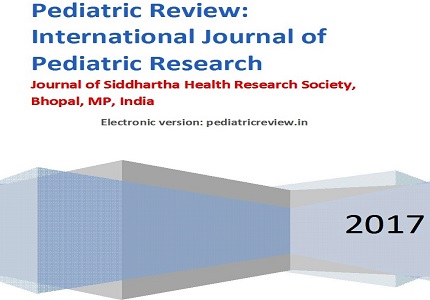Patterns of health care for children with asthma: A qualitative study
Abstract
Background: Many children across the world, struggle with asthma, especially when the condition worsens due to lack of adherence to treatment strategies, the reason for which however may not be completely understood. Hence the objective of the study is to explore the perceptions of caregivers and patients about pediatric asthma and its control to trace possible factors that lead to poor adherence to asthma control.
Methods: A qualitative study using conversational style interview for a group of 8 children and their guardians was conducted .In the discussion pre set questions were put forward to explore the perceptions of care givers and patients regarding asthma control management. The discussion was recorded with consent and later transcribed, coded and analyzed.
Results: The focus group discussion revealed that patient compliance is not perfectly maintained due to various factors. Patients have mixed responses to the restrictions ranging from co-operative to rebellious behavior. Large amount of anxiety exists among the parents with regards to the disease exacerbation and long course of treatment. Frequent hospital visits have been perceived to be cumbersome by them and they perceive a need for the use of such questionnaires as a home based asthma control monitoring system.
Conclusion: The focus group discussion reveals that proper counseling system and home based asthma control monitoring system need to be put into place to offer all round asthma control. Also use of questionnaires at home on a regular basis will reduce the number of hospital visits saving time and cost.
Downloads
References
2. Akinbami LJ, Moorman JE, Bailey C, Zahran HS, King M, Johnson CA, Liu X. Trends in asthma prevalence, health care use, and mortality in the United States, 2001-2010. NCHS Data Brief. 2012 May;(94):1-8. [PubMed]
3. Rachel A E. Poor adherence to anti-inflammatory Medication in asthma. Disease management and health outcomes. April 2006,14(4) 223-233.
4. Krueger RA. Focus groups. A practical guide for applied research and ed. Thousand oaks CA:Sage publications, Inc;1994; 2(10):63-68.
5. Mansell I, Bennett G, Northway R, Mead D, Moseley L. The learning curve: the advantages and disadvantages in the use of focus groups as a method of data collection. Nurse Res. 2004;11(4):79-88.
6. T. Klok,P.L.P. Brand,H. Bomhof-Roordink,E.J. Duiverman,A.A. Kaptein,Parental illness perceptions and medication perceptions in childhood asthma, a focus group study,Acta Pædiatrica 2011;100:248-252.
7. Rachel C, Caroline P and S McKenzie. Understanding childhood asthma in focus groups: perspectives from mothers of different ethnic backgrounds BMC Family Practice 2001, 2:4.
8. Wern F,Ngiap Chuan T,.The influence of caregivers’ knowledge and understanding of asthma aetiology on domiciliary management of children with asthma. Singapore Med J 2014; 55(3): 132-136.
9. Rudell K, Hareendran A, Bonner N, Arbuckle R, Burbridge C, Abetz L. Patients' experience of asthma control and clinical guidelines: perspectives from a qualitative study. Respir Med. 2012 Jun;106(6):909-11. doi: 10.1016/j.rmed.2011.08.024. Epub 2012 Feb 22.
10. M. Jonsson, A-C. Egmar, E. Hallner, I. Kull, Experiences of living with asthma – a focus group study with adolescents and parents of children with asthma J Asthma, 2014; 51(2): 185–192.
11. Hijazi N, Abalkhail B, Seaton A. Diet and childhood asthma in a society in transition: a study in urban and rural Saudi Arabia. Thorax. 2000 Sep;55(9):775-9. [PubMed]
12. Stone V. Environmental air pollution. Am J Respir Crit Care Med. 2000 Aug;162(2 Pt 2):S44-7. [PubMed]
13. Goeman DP, Aroni RA, Stewart K, Sawyer SM, Thien FC, Abramson MJ, Douglass JA. Patients' views of the burden of asthma: a qualitative study. Med J Aust. 2002 Sep 16;177(6):295-9. [PubMed]
14. William B,Evaluating the Efficacy of Focus Group Discussion (FGD) in Qualitative Social Research ,International Journal of Business and Social Science , April 2012;3(7):54-57.
15. Caroline MH, Ellis H,.The use of focus groups in paediatric health research, journal of paediatric psychology 2002; 27(1): 47-57.
16. Morgan DL. Reconsidering the role of interaction in analyzing and reporting focus groups. Qual Health Res. 2010 May;20(5):718-22. doi: 10.1177/1049732310364627. [PubMed]

Copyright (c) 2017 Author (s). Published by Siddharth Health Research and Social Welfare Society

This work is licensed under a Creative Commons Attribution 4.0 International License.


 OAI - Open Archives Initiative
OAI - Open Archives Initiative


